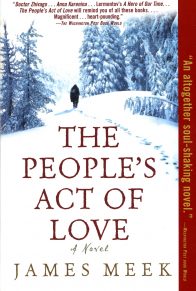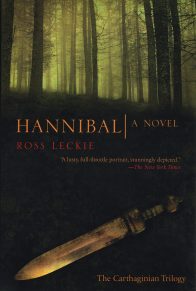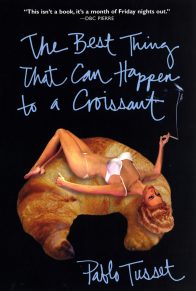“Meek’s rich voice and eye for detail make Kellas much more than a stock character . . . in its unsettling last pages, We Are Now Beginning Our Descent reminds us that even the clearest image can mislead. So Meek has told us already, in a dozen different ways, in this sharply observed meditation on modern war, which turns out to be as far from Tom Clancy’s entertainments as a vintage Mini Cooper is from a snarling Hummer.” —Alex Berenson, The New York Times Book Review
“The scenes from this . . . absorbing novel have a grittiness and authenticity that only firsthand experience could have produced . . . Meek has a novelist’s eye for irony and revealing detail . . . If We Are Now Beginning Our Descent is Meek’s 31st century War and Peace, then the sections away from the battlefields of Afghanistan and Iraq are even more gripping and equally action-filled . . . Meek puts his protagonist in such agonizing situations that only the most stony-hearted reader could fail to sympathize with him.” —Martin Rubin, San Francisco Chronicle
“Meek . . . has a wicked insight into the insecurities of foreign correspondents.” —Richard Eder, Los Angeles Times
“Meek exhibits such a knowing sense of humor about it all: in a typically audacious move on the author’s part, his protagonist is working on a novel within a novel within a novel, a thriller that promises action and adventure in abundance.” —The New Yorker
“James Meek provides relief . . . taking us out of ourselves and plunging us into the cracked world of Adam Kellas.” —The San Diego Union-Tribune
“A lesser writer would play Kellas’s misfortunes for laughs, but though Kellas is darkly comic, Meek makes us feel the sting of his desperation, too’ I might be biased: I opened this book while flying low over the west of England, on a plane bound for New York. I was able to look out over the same seas and islands that featured in Kellas’s thoughts. I was so gripped by the story that I carried the book open in my hand through passport control and customs. I am full of admiration for Meek’s precise and lyrical prose, for his mapping of the political landscapes through which his characters drift and for his evocation of the strange, torn geometries of the life in the global news stream. But what I most treasure in this novel is its generosity. We carry the flaws of the world inside us. But–however difficult, desperate and demented its manifestations–there is also love.” —Maureen Freely, The Washington Post
“An edgy combination of narrative and ideas, a visceral understanding of conflict, a hunger for authentic belief . . . [Meek] writes with authority about the physical and psychological landscapes of war, especially wars that unfold through the reporting of modern media . . . He is a keen observer of the complexities of love and friendship. He fills We Are Now Beginning Our Descent to the brim with ideas . . . Meek holds onto our attention by writing some of the most breathtaking, provocative sentences in contemporary English.” —Alden Mudge, Bookpage
“Meek is a sorcerer. Adam Kellas, an outlandish loser in love, pursues it with the ferocity of Britney Spears and the psychological intricacy of Tolstoy . . . As a result you can’t stop reading about it, and you can’t wait to see how it turns out. . . . Meek is that most singular of creatures: a true artist.” —Bookforum
“Kellas’s unraveling is deliciously enjoyable, and Meek’s crafting of character and setting is . . . masterful. The result is a book that . . . delivers rewards.” —Publishers Weekly
“Damnably hard to put down. Meek is a terrific describer: he can bring a landscape to life on the page with two or three confident strokes of colour . . . [Meek is] in exhilarating command of his material . . . What might, in other hands, have become a patchwork of flashbacks and flash-forwards has here the momentum and trajectory of a well-aimed rocket . . . I can think of no other writer who could set a novel at the intersection between airport new-stand thriller, literary fiction, classical myth and documentary journalism, and spin from these materials a book to keep one reading through the small hours.” —Jonathan Raban, London Review of Books
“James Meek has shown . . . that he can out-report more or less anyone from the trenches . . . . He has also shone in the entirely separate world of historical fiction, with The People’s Act of Love, and now he has gathered together the guilty secrets of the grit’n’ satphone set for an intensely flavoured excavation of our times, and made it look easy . . . . The detail is wholly original. The fluency and inventiveness of the prose ranges from merely satisfying to astonishing.” —Giles Whittell, The Times (UK)
“Meek’s writing can, at moments, be a little stylistically uneven; but when it is good, which is most of the time, it is extremely good . . . Meek atomises [his main character] brilliantly.” —Toby Litt, Financial Times Magazine (UK)
“James Meek embeds himself in a conflict between two kinds of commitment: to the possibility of contentment and to the insatiable romance of the troubled self . . .” —Tim Adams, The Observer (UK)
“Meek’s ability to write about such a range of subjects, and to capture the egotism of journalists and authors, is admirable. . . . [Kellas] is one of the more intriguing anti-heroes of recent fiction.” —The Sunday Telegraph
“This novel is leagues ahead of most, brilliantly combining an urgent story with profound meditations on what it is to be human.” —Lottie Moggach, The London Paper
“This is a brilliantly constructed contemporary novel, written with considerable style and illuminated with wit and intelligence on almost every page.” —Simon Humphreys, Mail on Sunday (UK)
“As gripping and acute as its predecessor.” —Justine Jordan, Guardian on Saturday
“Terrific writing.” —Rosemary Goring, The Herald (UK)
“His prose is never less than vivid. . . . [Meek’s voice] is distinguished by humour, high seriousness, heterogeneity and the ability to get inside his characters while holding them at arm’s length . . . In We Are Now Beginning Our Descent Meek has used his preternaturally acute ear to tune in to the static of our times.” —Ajay Close, Scottish Review of Books
“[Meek] has created not just an entertaining novel, but a valuable comment on some of the most contentious issues of our time.” —Freya McClements, Irish Times
“Meek is a fine writer, and many sharp, droll lines pepper his text.” —Lionel Shriver, The Telegraph (UK)
“Meek doesn’t shy away from difficult questions and his insight is penetrating.” —Chitra Ramaswamy, Scotland on Sunday (UK)
“Insights into love and war flash up like flares on every page.” —Arena (UK)
“[Meek’s] masterful skill as a storyteller is on display throughout . . . Meek knows how to hold his reader’s attention.” —Ophelia Field, Literary Review (UK)
“[I]t is the measure of Meek’s sureness that he does not evade difficulty. His brisk, ironic counterpoint constantly challenges simplicity . . . it is a risky strategy but precise language and deft construction make it work.” —John De Falbe, Spectator (UK)
“This is a truthful and powerful novel. Does it come anywhere near the Greatest War Reporter Novel podium, whose only occupant, Evelyn Waugh’s Scoop, has stood there without serious challenge for 70 years? I think it does. It might have got a little nearer to toppling that great cynic’s romp if it weren’t for the fact that this is at heart a novel about much more: it’s about love, friendship and the struggle to be true in a world that has lost its grip on certainties.” —Alex Renton, The Statesman (UK)
“Meek is excellent at evoking an Afghanistan of mulberry groves and old broken Soviet tanks, jagged mountains and craters where wedding parties once danced . . . as an exploration of the effects of 9/11 on the Western psyche, it’s fascinating.” —Anita Pati, Time Out (UK)
“An unusual, challenging and memorable read.” —Andrew French, Oxford Times (UK)
“Meek scrapes his characters across the jagged edges of their failed hopes and ambitions before binding their wounds.” —Iain Finlayson, Saga Magazine (UK)
“Meek’s intelligent, insightful novel is a compelling read . . . [his] gift for potent, startlingly precise imagery is again much in evidence here. But his disjointed story, with its dislocated, damaged protagonists, also amounts to an impressive whole: one that is obliquely moving, as well as grimly comical.” —Stephanie Cross, Daily Mail (UK)
“Meek’s writing is full of accurately documented moments and sly embedded tales, several deftly comic. Always readable, the book has pace and assurance . . . Structurally, this is a highly intelligent novel—edgily contemporary, repeatedly aware of dangerous distances from which we are inclined to hide.” —Robert Crawford, Independent Arts & Book Review (UK)













